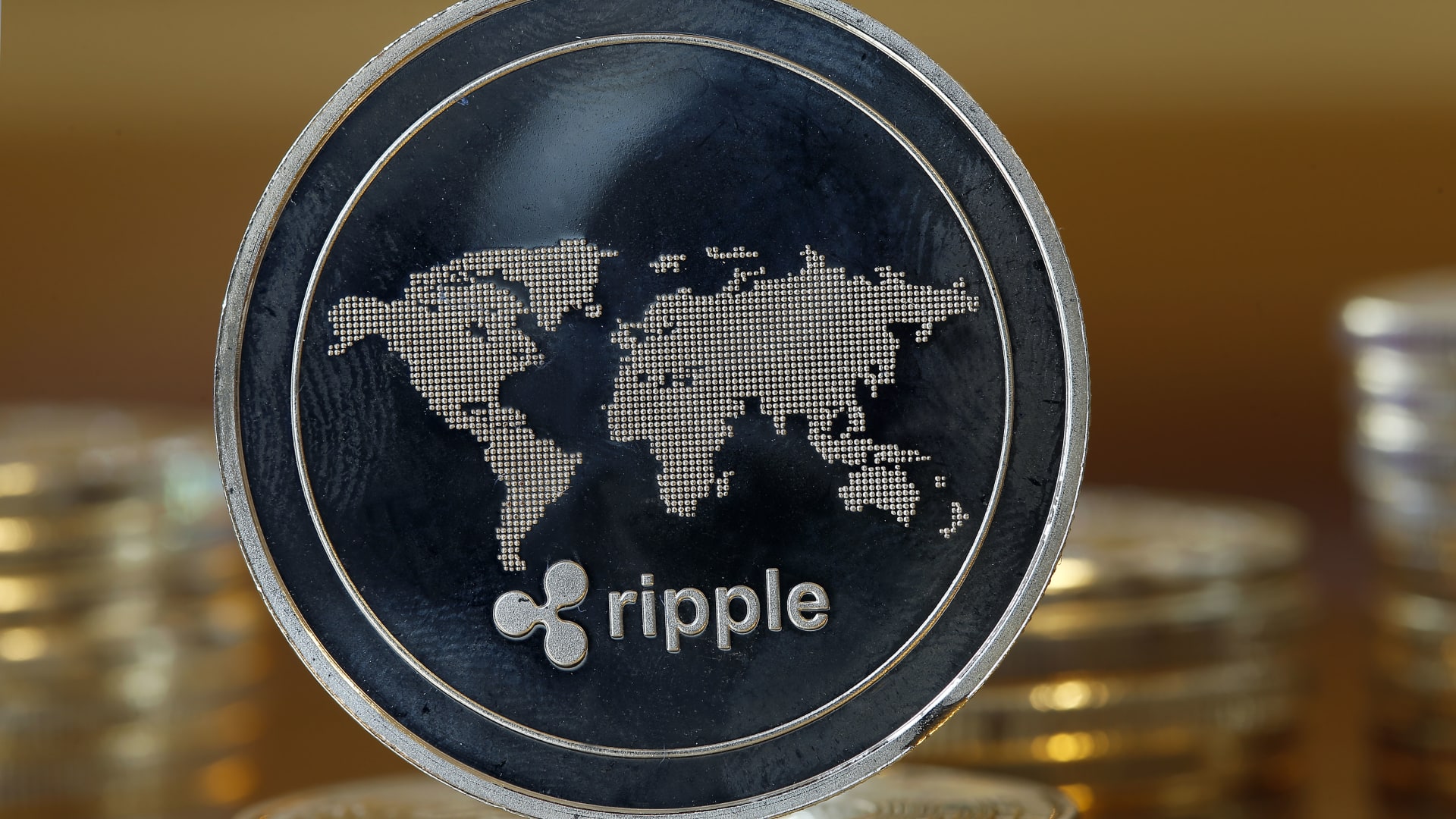Ripple’s XRP token went up 68% in the last 24 hours, leading a wider rally of major-cap altcoins, as crypto traders digest a key ruling that could stifle U.S. regulator efforts to stamp out digital asset trading.
Solana’s SOL and Cardano’s ADA tokens are 26% and 21% higher, while Algorand’s ALGO and Polygon’s MATIC coins are up 12% and 9%, respectively. All four tokens were recently singled out as securities in the U.S. Securities and Exchange Commission’s formal suits against popular crypto retail trading exchanges, including Binance and Coinbase.
But the Thursday summary judgement from U.S. District Judge Analisa Torres calls that classification into question.
For three years, the SEC and Ripple Labs — who developed the Ripple blockchain and issues the XRP token — have been locked in a protracted courtroom battle over whether the XRP, the world’s fourth-largest cryptocurrency, constitutes a security.
In 2020, the SEC alleged that Ripple, its CEO Brad Garlinghouse and the company’s executive chairman violated securities laws when it sold $1.4 billion worth of XRP. Ripple maintained that its token is not a security — triggering ongoing confusion over which digital coins fall into which regulatory bucket.
Many viewed the agency’s lawsuit against the San Francisco-based startup Ripple as a bellwether case for the wider industry — which could potentially force the SEC’s hand on defining which of the nearly 20,000 crypto tokens fall under its jurisdiction.
In her judgment on Thursday, U.S. Southern District of New York District Court Judge Analisa Torres ruled that XRP in itself is “not necessarily a security on its face.”
That elated industry participants, who saw the decision as a victory for both XRP and other coins.
“The ruling by federal Judge Analisa Torres is a landmark decision because she challenged the SEC in holding that Ripple’s XRP token is not a security subject to SEC regulation,” said Renato Mariotti, a former prosecutor in the U.S. Justice Department’s Securities & Commodities Fraud Section and now a trial partner in Chicago with Bryan Cave Leighton Paisner.
“The ruling undercuts the SEC’s assertion that nearly every token is a security and puts at risk some of the Commission’s recent enforcement actions.”
The industry hopes that the Thursday move “could lead Congress to adopt a more rational regulatory scheme,” Mariotti said. But uncertainty will continue to reign, in the absence of clear regulation, he added.
The development has nevertheless caused excitement in the crypto market. Coinbase has already moved to re-list XRP since Thursday.
The response from crypto markets harks back to the heydays of the crypto boom in 2021, when several bitcoin “alternatives,” or altcoins, rallied sharply, following on from a bounce in the largest cryptocurrency’s price.
Not clear cut
Judge Torres didn’t give Ripple a clean victory, ruling that some sales of XRP did constitute investment contracts that pass the so-called “Howey test” — a legal assessment to determine whether an asset is a security.
XRP sales to institutional investors, she said, qualify as securities and should have been registered with the SEC. That’s because investors involved in those sales signed up to agreements, which meant they had to lock up their tokens for a certain period of time.
Given they couldn’t back out of the deals, there was no possibility for XRP to be viewed as anything other than a speculative investment.
On the other hand, Torres pronounced that “programmatic sales” of the token — or crypto exchange transactions with retail investors — do not qualify as securities.
“The judge declined to deliver summary judgment on the question of whether programmatic sales of XRP via exchanges constituted the sale of securities, meaning that this question will be litigated further,” Cory Klippsten, the CEO of Bitcoin financial services firm Swan.com, told CNBC.
“I believe it’s likely that secondary trading of altcoins on exchanges will be given a pass, and that this is consistent with the laws on the books.”
Much of the SEC’s recent actions against exchanges like Gemini, Binance, and Coinbase hinge on the assumption that the assets on the platforms are securities. Thus, listing them without SEC approvals translated to a violation of securities laws.
The Thursday ruling may complicate the SEC’s campaign against exchanges, as it suggests that exchanges of crypto on the open market might not qualify as sales of securities.
Crypto-pegged equities like Coinbase and MicroStrategy — which has heavily invested its corporate balance sheet in bitcoin — were up by 24% and 11%, respectively, as of the Thursday close.
While Torres maintained that XRP in itself is not a security, many investors appear to be missing the point — what makes an asset a security isn’t the asset itself, but the way in which it is sold or marketed.
It is a more nuanced judgment than many in the industry have been treating it, and it’s worth noting the case is far from settled. There is a possibility that some of the findings could be appealed and reversed, as the court is due to issue a separate order setting a trial date.
